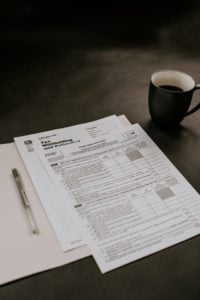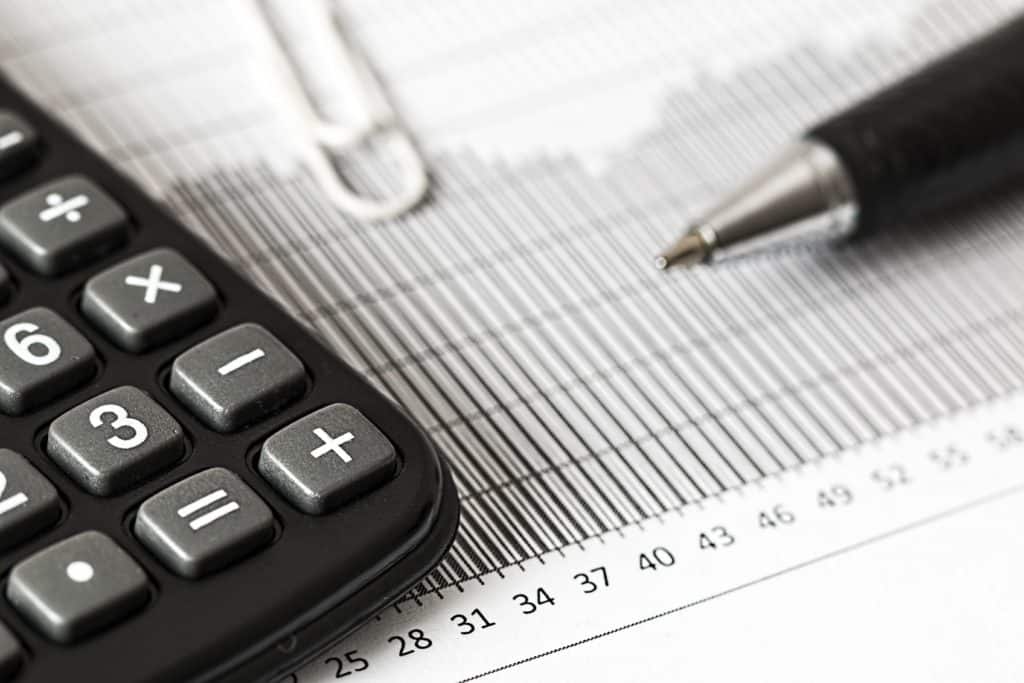As a certified public accountant, you can help private and public businesses with various needs, including taxes, financial planning, and even accounting. However, to become a CPA in New Jersey, you must be prepared to meet rigorous eligibility requirements set by the New Jersey Board of Accountancy.
Here are the Steps to Become a CPA in New Jersey:
- Getting Your CPA Education in New Jersey.
- Taking the Uniform CPA Exam in New Jersey.
- Gaining the Needed Experience in New Jersey.
- Getting Your CPA License and Continuing Education in New Jersey.

To be eligible for licensing as a certified public accountant in New Jersey, you must start by obtaining a bachelor’s degree or higher from an accredited institute. Once you have the appropriate business and accounting course hours, you can apply for the certified public accountant examination.
After successfully completing all four parts, you will undergo at least one year of experienced supervision and sit for the New Jersey ethics examination. Only after you have met these requirements may you apply to get your certified public accountant license in this state. It is critical to note that you must submit an application fee and renew your license every three years. Renewal will require continuing professional education courses to ensure continued proficiency within the field of public accounting.
Education
To be eligible to take the Certified Public Accountant exam in New Jersey, you must meet specific educational requirements. First and foremost, professionals must hold at least a bachelor’s degree or higher from an accredited university or college. While your degree can be in any field of study, there is a minimum requirement of 120 semester hours. Out of those 120 hours, 24 must be in accounting, and another 24 need to be in business. Students can find these credits available in top business schools in online and on-campus formats.
Once you pass your CPA examination, you must meet additional educational requirements to become fully licensed in New Jersey. Accountants must complete an additional 30 credit hours for a total of 150 semester hours from an accredited university or college. These can be accredited by a regional agency, the ACBSP, or The Association To Advance Collegiate Schools of Business (AACSB). Various regional agencies can affirm accreditation acceptable by the New Jersey Board. These include the following:
- Southern Association of Colleges and Schools
- Western Association of Schools and Colleges
- Northwest Commission on Colleges and Universities
- New England Association of Schools and Colleges
- Middle States Association of Colleges and Schools
Exam
To become a CPA in New Jersey, you must pass the Uniform CPA examination. This exam is specifically designed to help assess the skills and knowledge needed to practice public accountancy. This examination was constructed by the American Institute of Certified Public Accountants (AICPA) to ensure that licensed CPAs are held to a high standard of professionalism and service.

The Uniform CPA exam is a computer-based test that is made up of four different sections. In order to pass, you must take all four sections within an 18-month period and earn at least a minimum score of 75 on each part. The initial application for your CPA exam is around $200. Each section that you need to take will also cost about $200. This brings the total to take the CPA examination in the state of New Jersey to just over $1,000. It is important to note that if you do not pass a particular section, you must repay the application fee to take the section again.
Each of the four parts of this examination will take about four hours, meaning that the total test will take around 16 hours to complete. The four main areas tested include regulation, auditing and attestation, business environment and concepts, and financial accounting and reporting.
Auditing and Attestation (AUD)
This test section will evaluate your knowledge of the US standards of auditing as well as International standards of auditing. It will include the following:
- Eight Task-Based Simulations (50%)
- 72 Multiple Choice Questions (50%)
Business Environment & Concepts (BEC)
The test’s Business Environment & Concepts portion involves general business concepts such as international business, professional business communication, and tax preparation. For this segment, you can expect:
- Three Written Communications (15%)
- Four Task-Based Simulations (35%)
- 62 Multiple Choice Questions (50%)
Financial Accounting & Reporting (FAR)
This part of the exam will involve financial reporting frameworks and will ask you to compare statements based on various reporting standards. There will be:
- Eight Task-Based Simulations (50%)
- 66 Multiple Choice Questions (50%)
Regulation (REG)
This portion of the examination will be based mainly on ethics and explore your legal and professional responsibilities as a CPA. For this section, there are:
- Eight Task-Based Simulations (50%)
- 76 Multiple Choice Questions (50%)
Apart from taking the Uniform CPA examination, you must also pass the New Jersey Law, Code, and Ethics examination. It is important to know that this test differs from the default AICPA ethics examination many other states require for their certified public accountant licensing.

Experience
Once you pass the Uniform CPA exam, you will need to undergo a year of experience training to be eligible to obtain your official CPA license in New Jersey. This experience must be under the supervision of a direct licensee and within the practice of public accounting or an equivalent area. You may opt to work under the direct supervision of a CPA in the private industry or a government agency.
Your experience must include both auditing and accounting, which is intensive and diversified. Over the entire year, you must complete a minimum of 1,750 hours. If you opt to undergo a part-time experience, you may be given up to two consecutive years to complete the required hours. The experience you choose to undergo may be a paid job or volunteer work.
It is important to have a Statement of Experience for one year of employment following the passing of your certified public accountant exam and the acquisition of your bachelor’s degree. This will ensure that you are eligible for licensing in New Jersey. Having this statement of experience to submit alongside your application will help ensure your application acceptance is successful and avoid delays in your licensure.
Licensure
The New Jersey State Board of Accountancy issues all CPA licenses. To officially apply for CPA licensure in New Jersey, you must:
- Have completed 150 semester hours of college credits from an accredited institution
- Passed the Uniform Certified Public Accountant exam
- Completed the New Jersey law, code, and ethics exam
- Have at least one year of accounting experience
- Have copies of your official transcript
You will need to use the application for licensure as a CPA that can be found on the New Jersey Division of Consumer Affairs site. The license application fee is $65, with an initial license fee of $90 for the first year. The second year will cost $60, while the third will be $30. You will also need to submit an additional $90 renewal fee whenever you go to renew your license.

If you already hold a certified public accountant license in another state throughout the United States, you may apply for an interstate reciprocal license. Known as a certification by endorsement, you can submit the application for licensure as a certified public accountant by endorsement alongside a non-refundable $175 fee to the New Jersey State Board of Accountancy. You may need to submit additional documentation depending on the specific state in which you have your existing certified public accountant license.
If you currently hold a certified public accountant license in another country, you may be eligible for a reciprocal license in the state of New Jersey. Suppose your current license is in one of the acceptable areas that the New Jersey State Board of Accountancy has agreed to honor. In that case, you must undergo the International Qualification Examination, or IQEX for short.
Maintaining Your License
Once you have been awarded your official CPA license in New Jersey, it is important to realize that there is an ethics exam requirement that you must pass. Within six months of your initial licensing, you will need to complete an orientation course that is on the subject of New Jersey law and ethics. This course must be approved by the New Jersey State Board of Accountancy and include at least four credits.

All licensed CPAs in New Jersey must renew their licenses every three years. A necessary requirement of being approved for renewal is to undergo continuing professional educational training. Over the three-year period leading up to your license expiration, you must complete a total of 120 hours of continuing professional education credit.
The state requires a minimum of 20 completed course hours per year. Out of the total course requirements, at least 24 credits must be in the area of public accounting and auditing. At least 60 credits must be in technical subject areas, such as:
| Information technology | Taxation |
| SEC practice | Professional ethics |
| Economics | Finance |
| Accounting | Business law |
| Auditing | Mathematics |
Any technical courses you take can be in any specialty area, such as government, common non-profit, real estate, farming, and even the film industry.
Your continuing professional education courses may be approved by one of the following programs,
- New Jersey Society of Certified Public Accountants
- NASBA’s National Registry of CPE Sponsors
- American Institute of CPAs
Become the Next CPA in New Jersey
To become a CPA in New Jersey, accountants will need to earn a bachelor’s degree, pass multiple examinations, and complete continuing professional education courses. The whole process of becoming a licensed CPA in New Jersey is undoubtedly labor and time intensive. However, there are many career fields available for those in the CPA industry throughout the state, making this a professional path with great ROI potential.
Related Resources
How To Become A CPA
Highest Paying Accounting Careers
Online Master’s in Accounting
